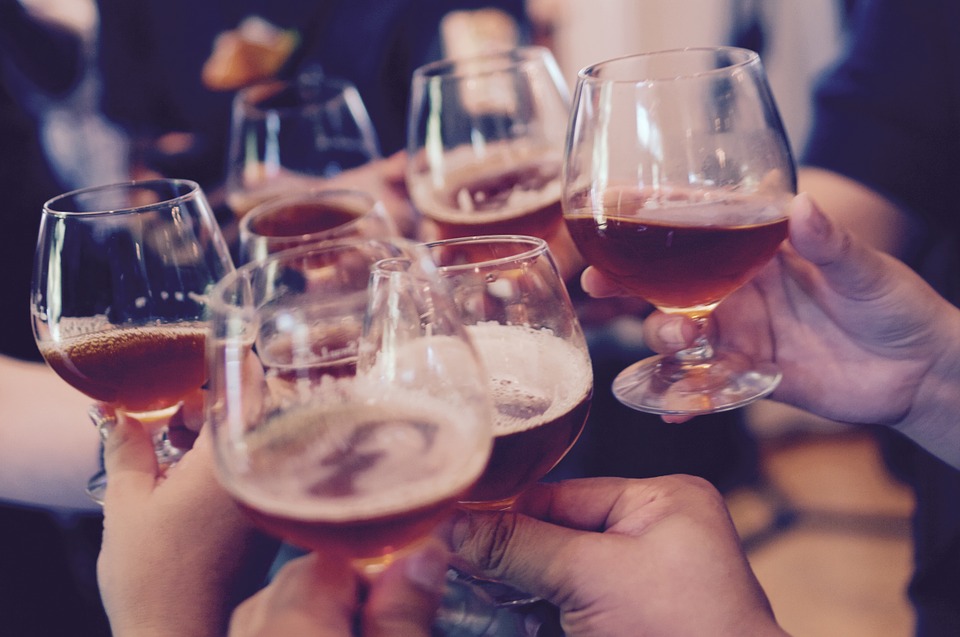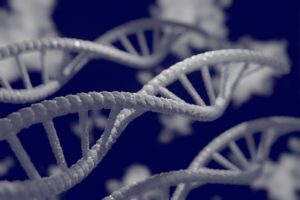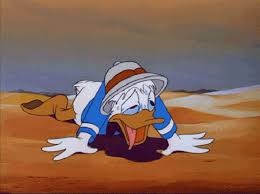
There are two major chemicals that are impacted by alcohol consumption that accounts for your feels of levity while you’re drunk. Those are endorphins and dopamine. These chemicals are both associated with pleasure and happiness. However, these can also account for some of the feelings of grumpiness one feels the day after. If you’re feeling grumpy the night after a good time, the Hangover Hospital has the best hangover cure in Key West and the best part is, we’ll deliver it right to your door.
Understanding the Effect of Endorphins in the Brain
 Endorphins are considered one of the brain’s “reward” chemicals. Those who get tattoos or piercings often report feeling good after the fact. That’s because endorphins are released during periods of intoxication. There is, however, a catch. Those who drink more often than they should or too much alcohol don’t get the same feel-good effects as those who drink lightly or moderately.
Endorphins are considered one of the brain’s “reward” chemicals. Those who get tattoos or piercings often report feeling good after the fact. That’s because endorphins are released during periods of intoxication. There is, however, a catch. Those who drink more often than they should or too much alcohol don’t get the same feel-good effects as those who drink lightly or moderately.
In other words, those who are feeling “buzzed” maybe having the best time out of anyone while those who are getting completely wasted have already “spent” all of their endorphins. In fact, drinking too much alcohol can depression, anxiety, and intense sadness. It can also trigger aggression in some people. You’ve heard of happy drunks, sad drunks, and mean drunks. Science indicates that the latter two are those who drink too much alcohol too often.
- However, there is some indication that alcohol’s pleasant effects reinforce alcohol consumption leading some people toward overconsumption and addiction.
Understanding the Effect of Dopamine on the Brain
 Dopamine is the neurotransmitter in your brain that is most associated with reward. Those with chronic alcohol problems or even those in the beginnings of alcohol addiction are triggering the production of dopamine artificially with alcohol. Almost every drug that is associated with addiction works on dopamine in some way, shape, or form. Alcohol is no different.
Dopamine is the neurotransmitter in your brain that is most associated with reward. Those with chronic alcohol problems or even those in the beginnings of alcohol addiction are triggering the production of dopamine artificially with alcohol. Almost every drug that is associated with addiction works on dopamine in some way, shape, or form. Alcohol is no different.
- As chronic alcohol or drug abusers use their drugs more frequently to produce the same effect, the brain becomes dependant on those substances to produce dopamine. In other words, the natural processes in your brain whereby dopamine is produced turn off in order to accommodate the overproduction of dopamine.
Addiction Recovery and Dopamine
 Dopamine (or the lack of dopamine) plays a central role in addiction recovery. Those in recovery can endure a prolonged and profound sense of depression while their brains attempt to reset themselves and produce dopamine on their own.
Dopamine (or the lack of dopamine) plays a central role in addiction recovery. Those in recovery can endure a prolonged and profound sense of depression while their brains attempt to reset themselves and produce dopamine on their own.
Alcohol is not alone in producing this effect. Opioids, meth, cocaine, and designer drugs do too. In fact, most heroin addicts will not relapse during the initial stages of detox, but in the aftermath when they just can’t seem to find any pleasure in anything—a state known as anhedonia.
- So when you’re drinking, be careful!
The Hangover Paramedics at the Hangover Hospital Can Help
If you’re in the throes of what feels like the world’s worst hangover, give the hangover paramedics at the Hangover Hospital a call or contact us online and we can deliver IVs in the Keys today.
CALL NOW: 305.912.4911
